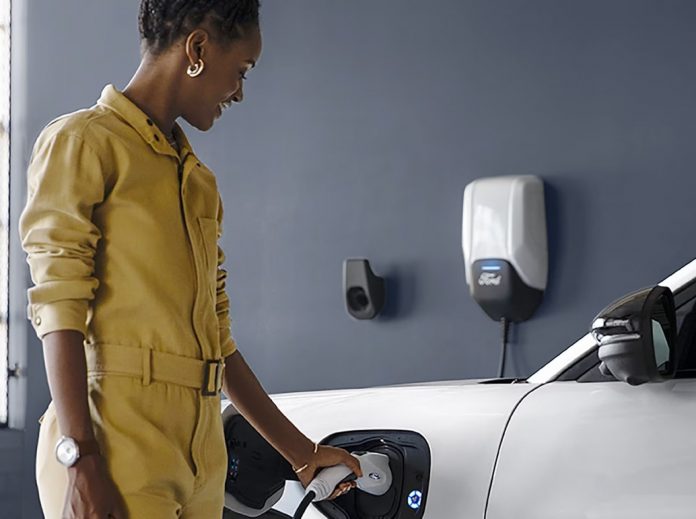Starting October 1, Ford Motor Company will offer a free Level 2 home charger and installation for buyers of its electric vehicles, aiming to address concerns that have deterred potential customers from switching to EVs. This initiative, part of a new program called the Ford Power Promise, includes a complimentary Ford Charge Station Pro home charger, which normally retails for $1,310, for buyers and lessees of the F-150 Lightning, Mustang Mach-E, and E-Transit commercial van during the fourth quarter.
Ford’s effort is designed to ease one of the key barriers to EV adoption—home charging convenience. The automaker is also emphasizing its eight-year, 100,000-mile battery warranty, access to the expansive BlueOval Charge Network, and compatibility with Tesla’s Superchargers through adapters. Additional services, such as 24/7 live customer support and roadside assistance for depleted batteries, further strengthen the package.
Becca Anderson, senior director for customer success with Ford’s Model e EV unit, described the program as “a supercharged suite of offerings to provide unparalleled support for our U.S. customers.” The *Ford Power Promise* consolidates various support services that Ford has built over the past two years into a comprehensive commitment to EV owners.
While the home charger and installation offer will only be available in the fourth quarter of 2024, the ongoing benefits, including live customer support and mobile service through dealerships, will continue beyond that period. Ford’s preferred partner, Qmerit, will handle the installation, covering up to 60 amps and 80 feet of wiring. Additional costs will only be incurred for customers requiring electrical panel upgrades.
For customers who do not qualify for the home-charging benefit—such as those living in apartments or already owning a charger—Ford will offer a $2,000 cash equivalent through its dealerships.
This initiative is backed by a Ford-commissioned survey conducted in September, which highlighted that nearly half of U.S. new-vehicle shoppers could benefit from an EV, given that most have garages for home charging and don’t drive distances exceeding an EV’s range. However, practical concerns like access to public fast-charging stations and home charging efficiency remain significant hurdles. Martin Delonis, senior manager of strategy for Ford Model e, noted the gap between potential buyers’ concerns and current EV owners’ satisfaction, suggesting that this program aims to bridge that gap and encourage more consumers to transition to electric vehicles.



